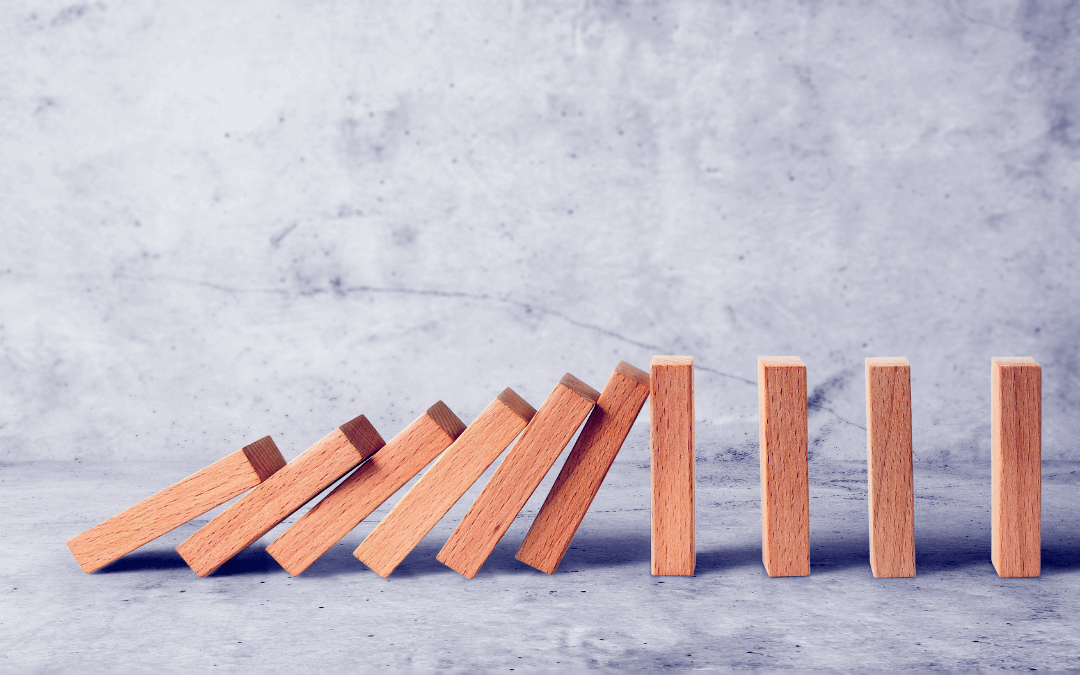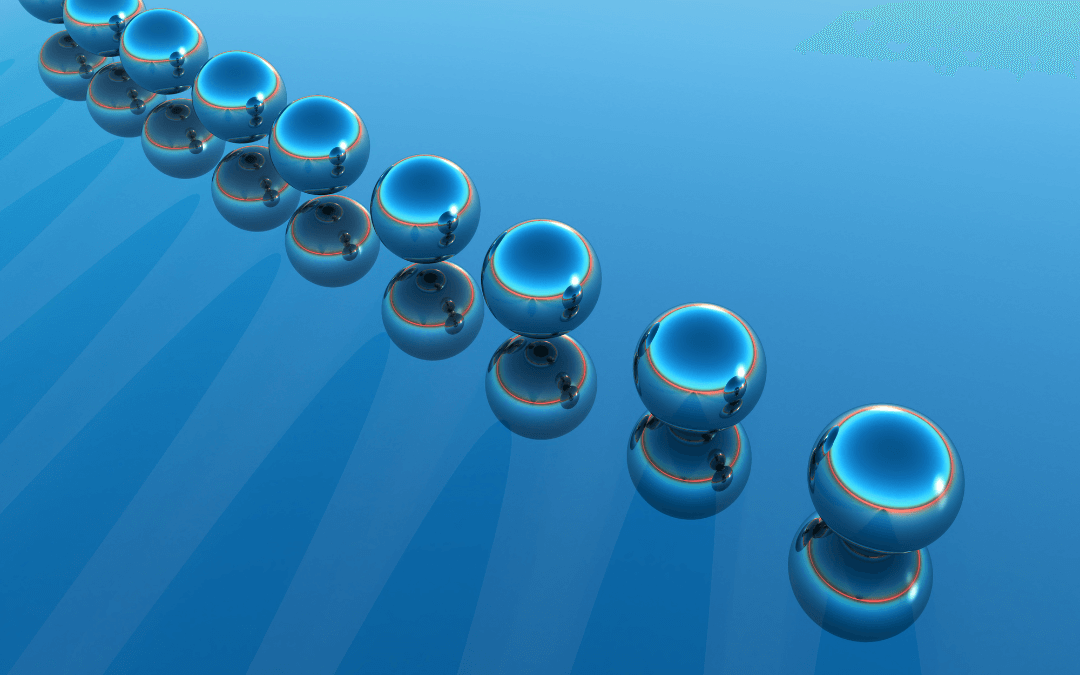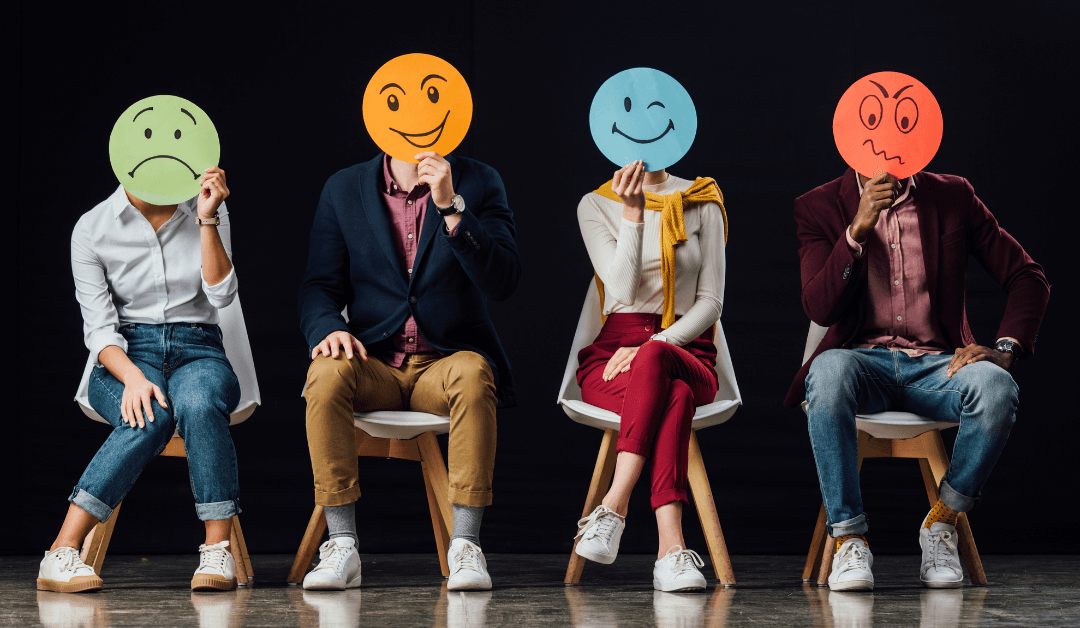Most people use the terms emotions and feelings interchangeably. I’m certainly guilty of that! But there is a difference. A big difference. And understanding it unleashes a power you never knew you had.
Let me explain.

What are emotions?
Emotions are the unconscious processing of events. They are reactions completely out of your control. Emotions happen automatically and are universal.
We have emotions for a few reasons, but in a nutshell, they developed to help us cope with life. Each emotion triggers a chain reaction in your body to prepare you for a specific action. These chain reactions are also completely out of your control and have to run their course once they were triggered.
The emotion itself only lasts about 2 minutes. The chain reaction in your body can last for hours. If you re-trigger the same emotion, your emotional reaction builds on the previous one. That’s why the physical chain reaction can stay with you for hours and even days. That’s why emotions seem to last forever.
Here is an example. You see something scary, like a lion. This event triggers fear, which in turn sets of a chain reaction in your body. Your heart rate accelerates. Neurotransmitters flood into your bloodstream and your cells release energy. Blood flows into your arms and legs. All within seconds.
Why? Because fear just prepared you for the perfect action: fight or flight. That’s what the system is for. Emotions are pre-installed plans to deal with situations in life. Their purpose is to prepare you for the right action fast so you stay alive and safe. Awesome, right? Now onwards to feelings.

What are feelings?
Feelings are the conscious processing of events. Your heart races. Your palms are sweaty. You are on a date. Now this is the interesting part: At some point you decide whether you feel excited, nervous or even downright terrified.
Which one is it? While feelings are our conscious processing, this does not necessarily mean that we choose our feelings really consciously. A lot of feelings are learned and practiced over time. They can even become habits.
If this is date number 217 you will notice the heart rate and the sweaty palms. If these reactions are unusual, you might think you are excited. Maybe this person is the one! Why else would you react that way?
If you had the same reaction on the 216 previous dates, you’ll think it’s all just part of the process. You always feel like that on a date. It means nothing. You surreptitiously wipe your palms on your pants and ask your date about the last book they’ve read.
Or maybe you suffer from anxiety. In the past, accelerated heart rate and sweaty palms were the beginning of a panic attack. You remember the lastattacks and feel scared. This fear triggers another emotional reaction and you feel worse by the minute. (I’ve been there!)
But the starting point was that fraction of a second when you noticed your heart rate and the sweaty palms and labelled it anxiety.

Why does the difference matter?
Now that you know the big difference between emotions and feelings, here’s the amazing part. Your emotions are fixed. They happen. But what you call the reactions in your body they trigger is learned.
You learned to call the accelerate heartbeat and the sweaty palms “fear.” Or you learned to call them “excitement”. Is the heavy feeling in your stomach “nervousness” or “anticipation”? It depends who you grew up with.
Emotions are contagious. Surround yourself with happy people, and you laugh more yourself. Surround yourself with worriers and everything seems difficult.
People have the emotional reaction. Accelerated heartrate, sweaty palms. You tune in to that reaction, especially as a kid. Now here’s where the difference becomes so important.
If you grow up with parents who then label this emotion as fear, who even react with worry, you learn to associate the physical reaction with those feelings. What’s more, you watch the people act on those feelings. The shoulders tense up. The smile disappear. The forehead folds into a frown.
If you grow up with parents who label their emotional reaction as excitement, you’ll notice that they pull their shoulders back. The chest moves forward and they smile in anticipation.
These secondary reactions – the frown or the smile – are not triggered by the emotion itself but by the feeling people associate with the emotion. And this association is learned. Which brings me to the fantastic news: What you learned once, can be unlearned! You can literally relearn how you feel.

Re-learning feelings
Accept that your feelings are a result of learning and habit and you can consciously decide to feel differently. You can consciously decide to see your emotions in a different light.
The first step is to notice your emotions and feelings. Self-awareness is key. Do the exercise in the post and practise labelling your feelings as they come up. Tune into your emotions with the second exercise.
Once you know what your emotions feel like in your body and what you label those physical reactions, you can decide what you want to change.Let’s say you notice that just thinking of money accelerates your heart rate. You used to call that fear. Could you become excited about money instead?
Since your feelings are not set in stone, you are also constantly influenced by the people around you. You might have grown up with parents who considered risk-taking a necessary part of success but then maybe met people who were scared of it. If you spend enough time with those people, you will become scared too.
So step two is surround yourself with people who feel the way you want to feel. Let them help you re-learn your feelings and form patterns that are useful to you.
Like everything else, how you feel is actually a skill. You may have learned it without realising, but now that you know, you can re-learn a different language for your emotions. You can expand your vocabulary to describe the openness in your chest and the lightness in your back, for example. (Happiness and relief for me.) Or decide to take a deep breath and label your sweaty palms excitement because you’re on a date with a fascinating person.
You’ve learned how you feel without realising it. But now you know that you are in control and have far more power over your feelings than you thought. What you learned once, can be re-learned and because you’ll do it consciously, the process will be easier and faster. Why not start today?
